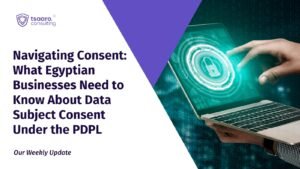Introduction
Securing information in the medical care industry is not a simple task. Medical services suppliers and their business partners have to ensure patient protection while conveying quality patient consideration and meeting the severe administrative necessities set up by Health Insurance Portability and Accountability Act (HIPAA) and General Data Protection Regulation (GDPR). Since Protected Health Information (PHI) is among a person’s generally delicate (and for crooks, important) private information, the rules for medical services suppliers and different associations that handle, use, or communicate patient data incorporate severe information assurance necessities that accompany powerful punishments and fines in case they’re not met.
In this article, we will further discuss what measures can be taken to improve data privacy for people in the healthcare sector and what is the legislation and how they apply.
The role of HIPAA in Data Privacy and Security
HIPAA guidelines affect medical care suppliers in the U.S., albeit different guidelines like the impending GDPR affect worldwide tasks. It’s up to medical services suppliers and business partners to guarantee that they’re exceptional on the most recent prerequisites and select sellers and business relations that similarly are inconsistent with these guidelines.
HIPAA has 2 main components regarding Health care data protection:
- The HIPAA Security Rule
Spotlights on getting the creation, use, receipt, and support of electronic individual wellbeing data by HIPAA-covered associations. The Security Rule sets rules and guidelines for managerial, physical, and specialized treatment of individual wellbeing data
- The HIPAA Privacy Rule
Expects shields to secure the protection of individual wellbeing data including clinical records, protection data, and other private subtleties. The Privacy Rule limits what data might be utilized (and in what way) and uncovered to outsiders without earlier persistent approval.
What are the main concerns regarding data in the Health care Sector?
As indicated by research distributed in 2016 from the Ponemon Institute, criminal assaults have expanded by 125% beginning around 2010 and presently address the main source of medical services information breaks. In addition, medical services associations are to a great extent ill-equipped to ensure patient information against a constantly changing scene of safety dangers.
Ponemon studied 91 substances covered by HIPAA just as 84 business partners (merchants and different associations that handle patient information), tracking down that 89% had encountered a medical services information break, and a full half of those breaks are inferable from criminal assaults. Most breaks were little, affecting less than 500 patient records, however, some were enormous and very expensive. The normal expense of a medical services information break affecting a medical care association somewhere in the range of 2014 and 2015 was $2.2 million, while breaks affecting business partners found the middle value of more than $1 million.
To shield information from cybercriminals, medical services associations and business partners should execute powerful safety efforts to shield patient information from an expanding number and assortment of dangers. Weaknesses in remote organizations, for example, offer a simple section point for programmers, yet these organizations are of basic significance to medical care associations, making it simpler to get to patient data and enhance the conveyance of care.
What are the measures that can be taken to protect Healthcare Data?
These accepted procedures for medical services network safety expect to stay up with the advancing danger scene, addressing dangers to security and information insurance on endpoints and in the cloud, and shielding information while it’s on the way, very still, and being used. This requires a multi-layered, refined way to deal with security.
- Educating Healthcare staff members.
- Restricting access to data and applications.
- Implementing Data Usage controls.
- Logging and monitoring usage.
- Encrypting the data when it is in transit and while resting.
- Using more secure mobile devices.
- Reduce connected device risks by appropriate due diligence.
- Conducting regular risk assessment tests.
- Backing up data securely to an offsite location.
- Carefully evaluating security and compliance of business associates.
Conclusion
Notwithstanding billions of dollars spent every year to watch passage focuses on clinical information, numerous medical care suppliers actually disparage the essential benefit of further developing information security. As this pandemic proceeds, it is a higher priority than at any other time that these fundamental administrations can utilize their information as well as store it safely. Organisations following a combination of the points mentioned above along with proper administrative compliance can keep themselves on the safer side.










